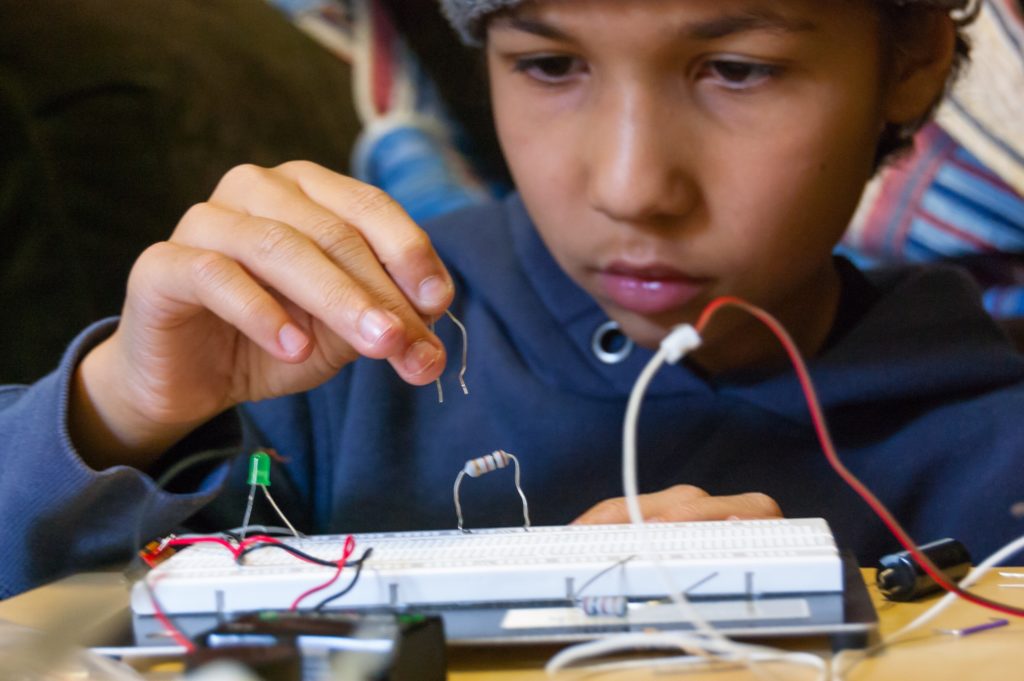A patent is the ultimate stamp of approval for any invention. Whether it is a scientific discovery, such as a new chemical compound, or a feat of engineering, such as a device you’ve ideated, patents protect your intellectual property (IP). Nowadays, however, patents go much further than simply protecting your venture from illegal replication. Patents are used as a marketing tool, to demonstrate authenticity, originality, and quality in a product. Think about how many times you’ve seen ‘patent-pending’ or ‘patent-approved’ on the label of a product or the website of a manufacturer.
Similarly, patents are viewed by college admissions as a highly sought-after distinction of creativity and technical capability of its inventor. Many admissions officers rank patent ownership or other proof of your inventive accomplishments as a ‘Tier 0’ or ‘Tier 1’ achievement when evaluating applications, comparable to winning international olympiads or competing for your national team for a sport. However, unlike olympiads and athletics, patent creatorship isn’t ‘competitive’ by nature – you aren’t competing with thousands of others to ‘win’ a patent. Instead, it’s an independent path that you can pursue that leads to an amazing and unique distinction on your awards list in your college application.
In this article, we’ll cover how you can apply for a patent as a high school student, and whether doing so is the right choice for your college applications.
Important Note
As with everything that sounds like it’s too good to be true, patents have a couple of drawbacks. First of all, patents can be extremely expensive, time consuming, and difficult to obtain. We’ll discuss some ways you can lower these barriers of access later in this article. Secondly, patents aren’t for everyone. Before you even consider applying for a patent, there are a lot of other components to your narrative that are needed. A standalone patent with no relation to the rest of your application is neither a productive expenditure of your time and money, nor of much help to your college application.
When and How to Get a Patent
In the context of college applications, a patent works as a multiplier. It’s a great way to multiply the impact of your pre-existing idea or project. But, if you can’t justify obtaining a patent for non-college reasons (such as protecting your invention’s idea, helping market your startup, etc), then it isn’t justifiable for college applications either. Colleges are looking for extracurricular projects that create impact, and while a patent can demonstrate impact and originality, it shouldn’t stand as the project itself.
So, if you have a promising idea or project you’re working on, you’ve made significant progress in developing and scaling this project, and would like to add a patent to your honors list in your application, what do you do? One of our former students found himself in a similar position in the summer before 11th grade, and decided to begin by understanding what parts of his invention he’d need to develop and draft before a patent can be made. Start by studying commonly-cited examples of past patents, such as this compilation of successful drafts. Consider these patents as a template for yours, and determine which aspects of your invention you will need to note and explain.
If your purpose for this patent leans more toward college applications and marketing the patented status rather than long-term intellectual property coverage, we suggest considering a provisional patent first. These more informal though still legally-recognized patents precede utility patents and provide a patent-pending status for up to one year. During that one year, you can decide whether to file a proper utility patent and use the time to do so while your provisional patent temporarily protects your idea. Patents in the US take a lot of time (multiple years, usually). It is therefore quite unlikely to get a US patent approved before college admissions. However, in many countries, ‘utility patents’ or ‘short-term patents’ can be approved within months, as they don’t require checking against prior arts (the formal term for prior patents, essentially). This is a cheaper, faster, and easier way to get a ‘patent-approved’ status. You should also consider if your invention targets only domestic markets, or if it is worth protecting in foreign markets such as China or the European Union.
While you can file a patent yourself (especially if it is provisional or ‘short-term’, since these aren’t checked for originality), it is much easier to have an IP lawyer check your draft and help you file it through your country’s patent agency website. Check with your friends and family to see if you have any connections to a lawyer who would be able to give a few hours of their time to reviewing your patent draft. If this is not possible, call your local IP law firms and ask if they can consider a pro bono or discounted rate to work with one of their trainees or law students. Many firms offer this service, especially for charitable cases such as helping a high school student, even if they do not advertise this on their website.
Your local city council or government agency may also offer subsidized IP lawyer access if you meet household income criteria or entrepreneurship guidelines. Look up subsidized patent attorney programs in your town, city, state, and country. For example, Texas has the ‘TALA Pro Bono Program for Inventors’. From there, you can work with your attorney to bring your current patent draft to fruition and file it within weeks of drafting.
Don’t stop at the patent, though. For both the success of your own venture as well as its representation in your college application, treat the patent as a resource just as much as an achievement. A student that can demonstrate what they did with their patented (or patent-pending) invention will fare much better than a student who draws the line at filing the patent. In your application, you can list your patent (whether pending or approved) in your activities list, and it could possibly be a complimentary theme or addition to your essays, if you choose to write about the venture or story behind your patented invention.
Final Thoughts
A patent is the final step of a longer process; the culmination of a creation and project you have undertaken. Not every invention needs to be patented (famously, WD-40 never has been), but earning a patent does serve as a potent symbol of your accomplishments, and is a signifier of outside approval for work you have done.
Of course, patents aren’t the only symbol of work well done. We also have advice on doing research as a high school student, and how to write a research paper to share your results. You also should not get the impression that patenting an invention is necessary for admission to a top tier university. While it provides a nice emphasis to your application, it is far from the only way to make yourself stand out.
If you are looking for guidance with your own high school projects, or want to learn how we can help you prepare an activities list which will astound admissions officers, schedule a free consultation today. Our Candidacy Building service helps students develop unique and in depth projects, and we’re always happy to help you explore your interests.








